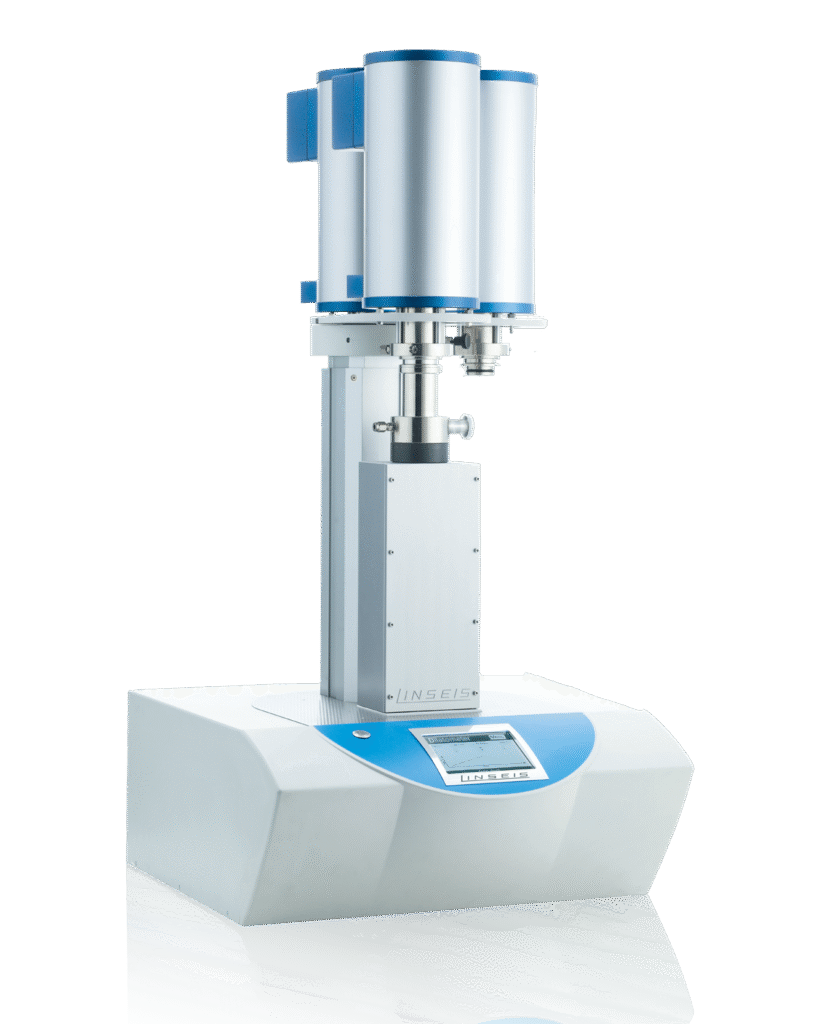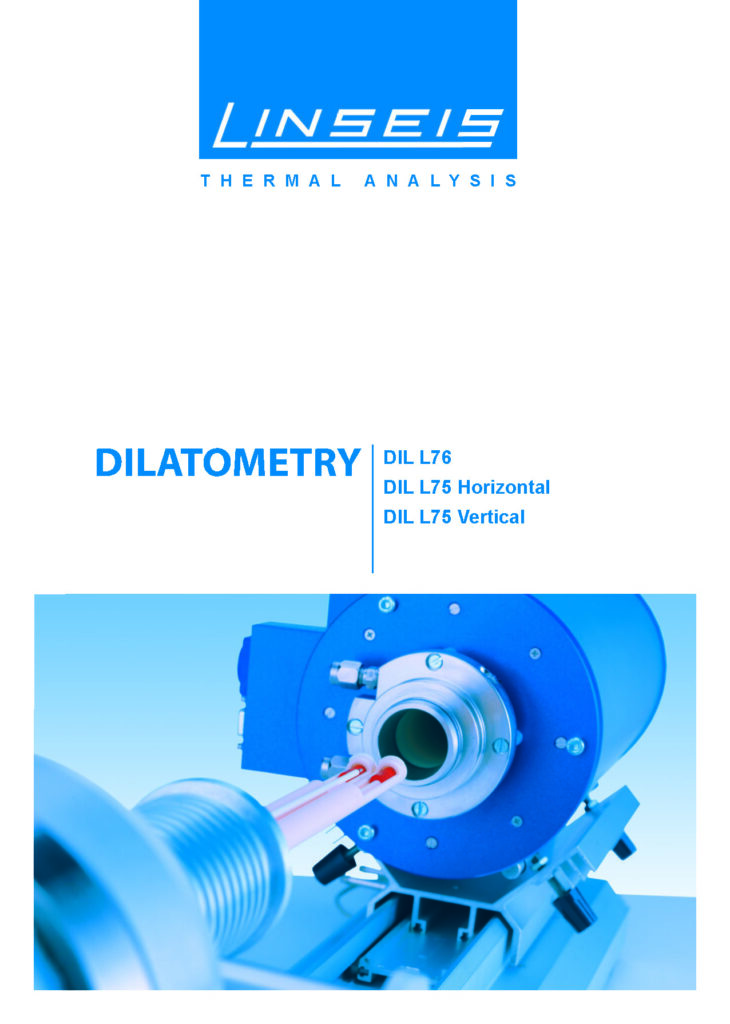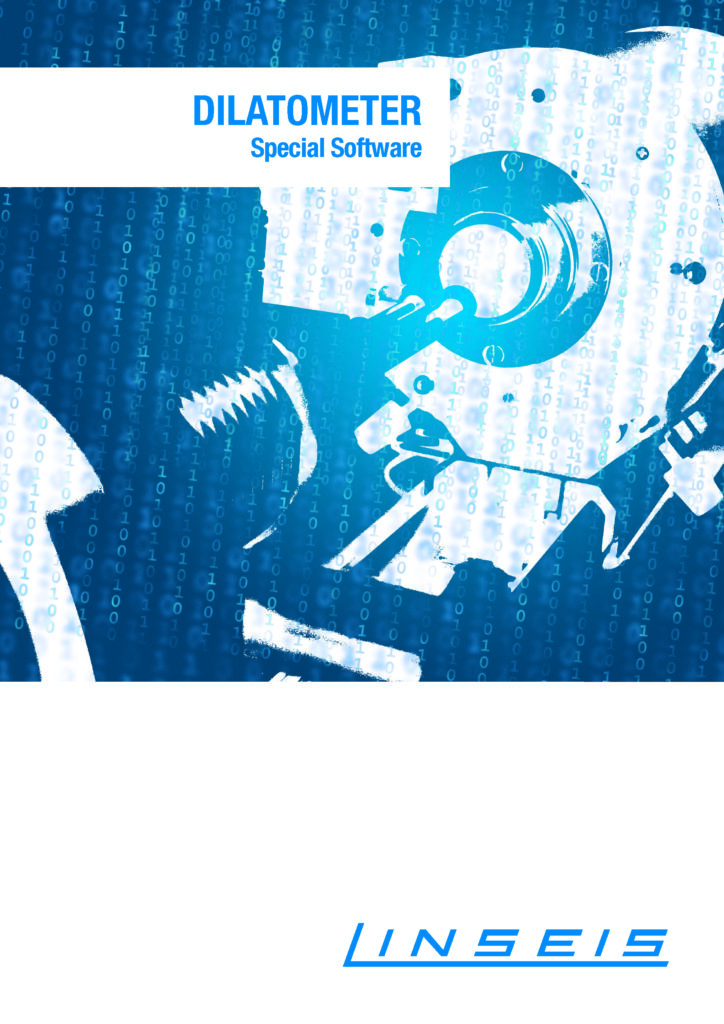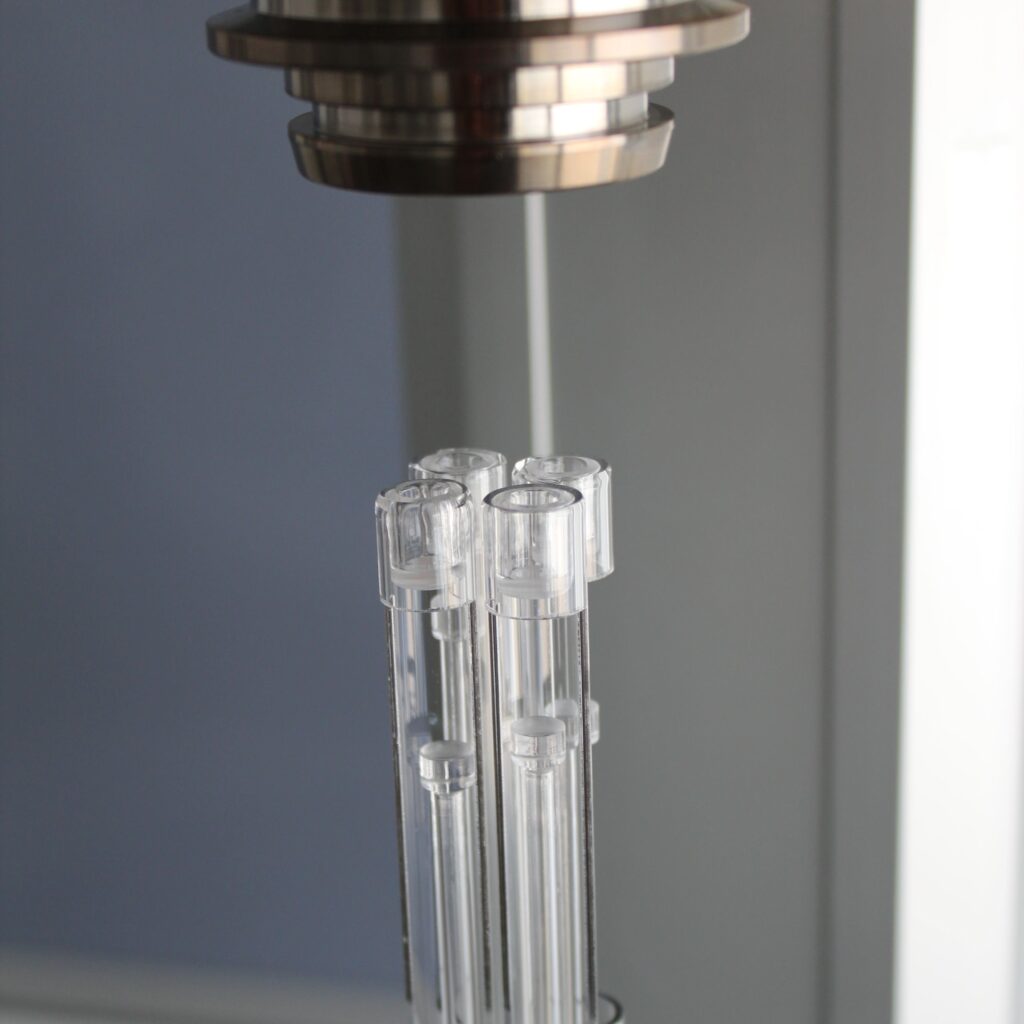Description
To the point
The LINSEIS L75 Quattro Dilatometer is a unique instrument specially developed for customers who want to measure large quantities of samples.
The Quattro Dilatometer is equipped with four separate measuring sensors that can simultaneously measure either four separate samples at once, or three separate samples against a reference standard. As a result, the productivity of the Quattro dilatometer is three times higher than that of a commonly used dual shear bar dilatometer.
Another feature of the L75 Quattro dilatometer is the “multi-furnace” option. This allows the user to insert new samples and use the second furnace while the first is still cooling down.
Furthermore, the Quattro Dilatometer uses a unique amplifier with automatic zero setting for all four samples, as well as a manual push rod speed release for each sample. This makes it very easy to change all four samples and guarantees high measurement accuracy.
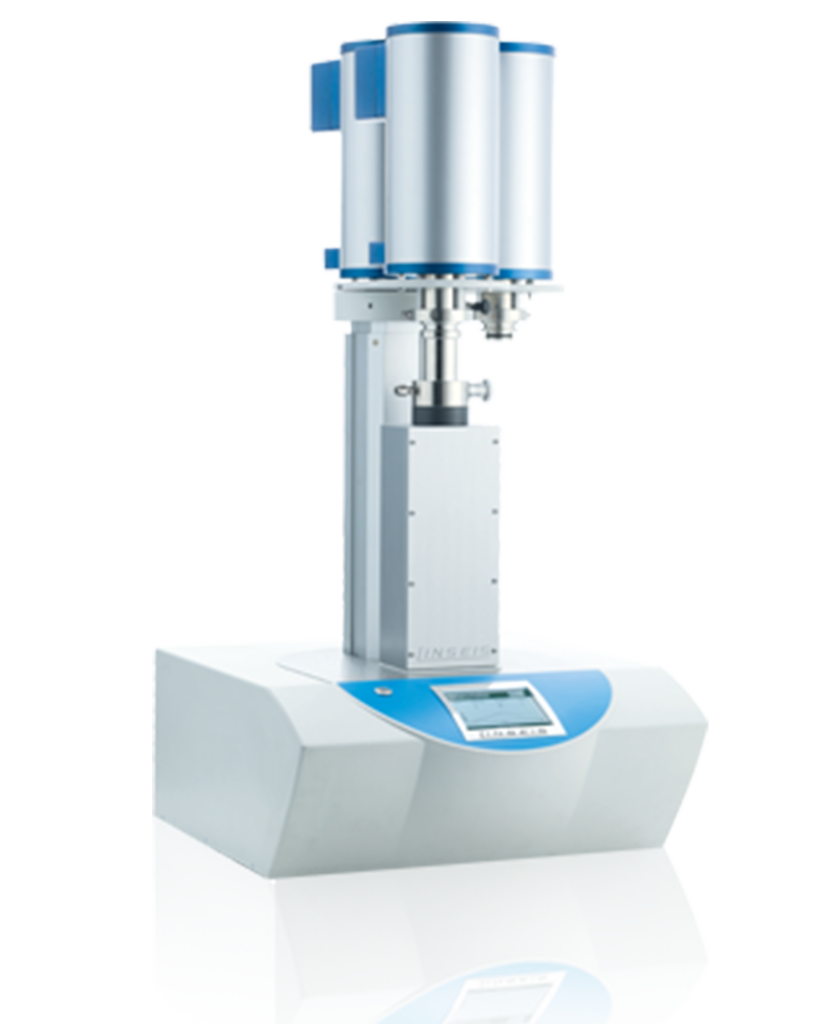
Unique Features
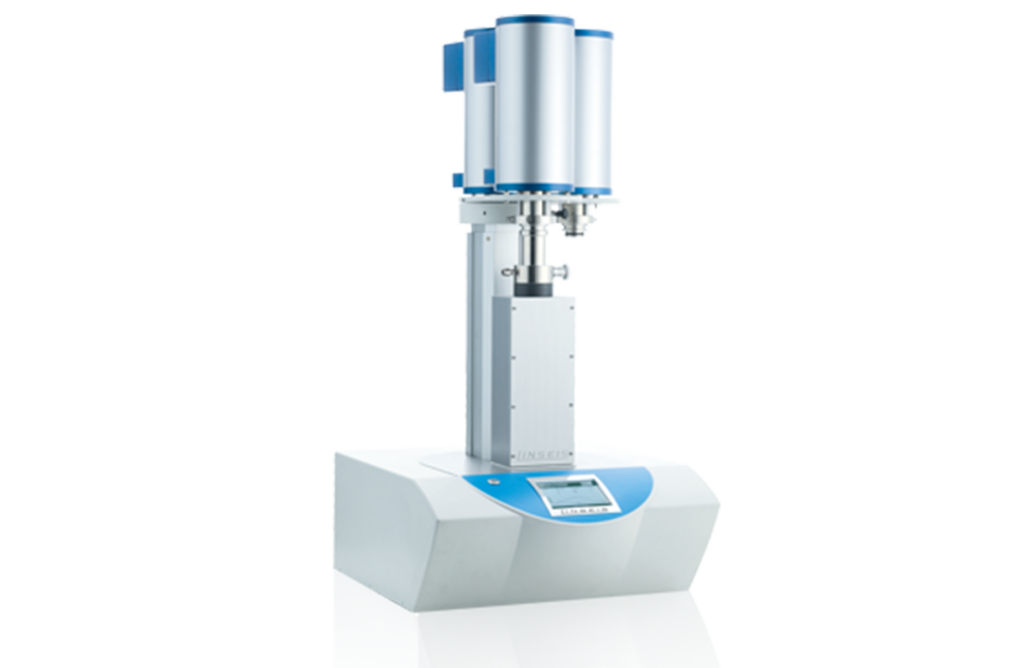
Four separate measuring sensors
for simultaneous measurement of
up to four samples
Productivity three times higher than
with dual push rod dilatometers
Automatic lifting mechanism
of the ovens for fast sample
throughput
Unique amplifier with automatic
zero setting for all samples
“Manual push rod speed release”
for easy sample change
Questions? We're just a call away!
+1 (609) 223 2070
+49 (0) 9287/880 0
Our service is available Monday to
Thursday from 8-16 o’clock
and Friday from 8-12 o’clock.
We are here for you!
Specifications
MODEL | DIL L75 QUATTRO* |
|---|---|
| Temperature range: | -180°C up to 500°C/700°C/1000°C RT up to 1000°C/1400°C/1600°C/1750°C/2000°C/2400°C/2800°C |
| Heating/cooling rates: | 0.01 K/min … 50 K/min (dependent on furnace) |
| Sample holders: | fused silica, Al2O3 <1750°C, graphite |
| Sample length: | max. 50 mm |
| Sample diameter: | max. 7 mm |
| Measuring range: | 500/5000 µm |
| Resolution: | 0.125 nm |
| Atmospheres: | inert, oxidizing, red., vac., static/dynamic |
| Electronics: | integrated |
| Interface: | USB |
| *Specs depend on configurations | |
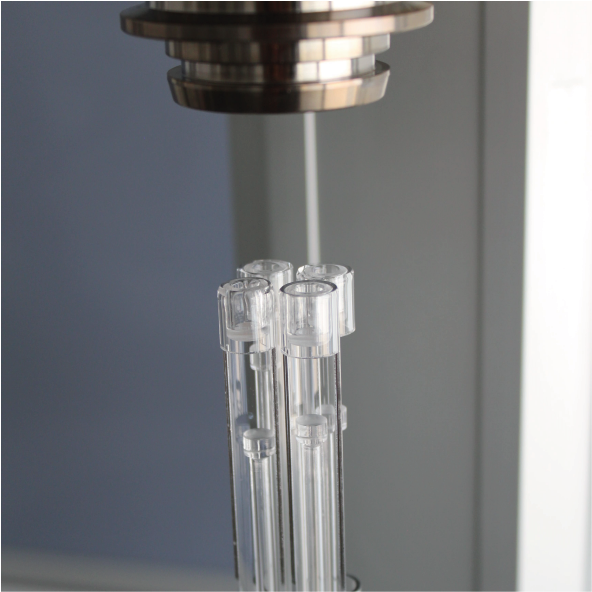
Furnaces and accessories
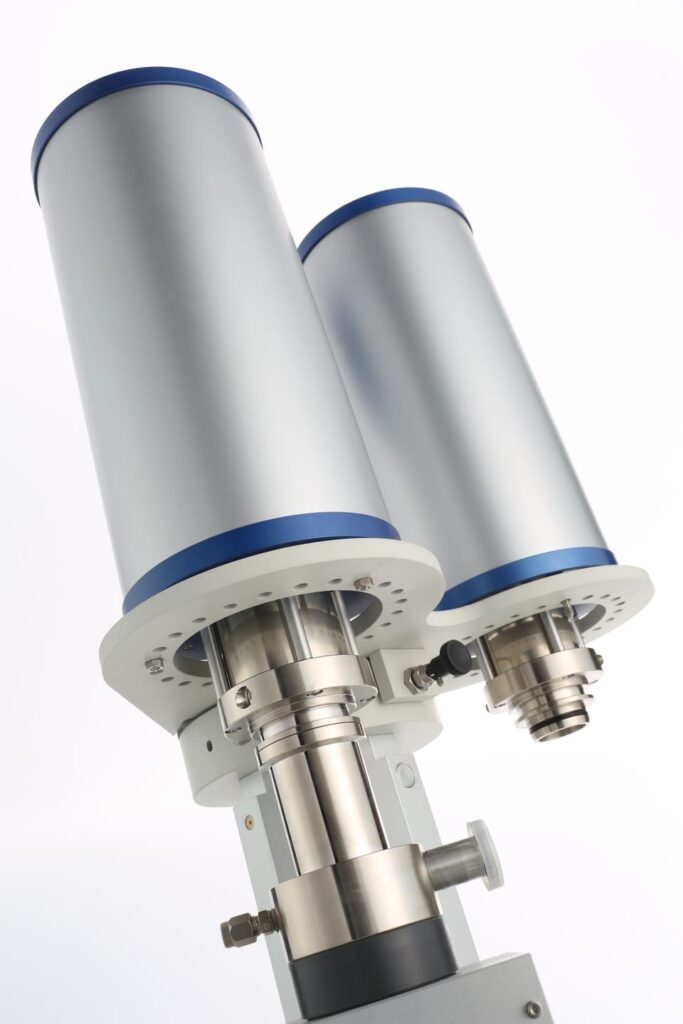
Oven options available:
- L75V 500LT -180°C to +500°C
- L75V 700LT -180°C to +700°C
- L75V 1000LT -180°C to +1000°C
- L75V 1000 RT up to 1000°C
- L75V 1400 RT up to 1400°C
- L75V 1550 RT up to 1600°C
- L75V 1750 RT up to 1750°C
- L75V 2000 RT up to 2000°C
- L75V 2400 RT up to 2400°C
- L75V 2800 RT up to 2800°C
Accessories:
- Devices for sample preparation
- Various specimen holders (size, material)
- Caliper for manual or online input of sample length
- Various gas boxes: manual, semi-automatic and MFC controlled
- Software option Rate Controlled Sintering (RCS)
- Various rotary and turbomolecular pumps
- Possibility of operation under 100% H2
- LN2 cooling
Software
Making values visible and comparable
The powerful LINSEIS thermal analysis software, which is based on Microsoft® Windows®, performs the most important function in the preparation, execution and evaluation of thermoanalytical experiments, in addition to the hardware used. With this software package, Linseis offers a comprehensive solution for programming all device-specific settings and control functions, as well as for data storage and evaluation. The package was developed by our in-house software specialists and application experts and has been tried and tested over many years.
Dilatometer functions
- Glass transition and softening point determination
- Automatic softening point switch-off, freely adjustable (system protection)
- Display of absolute or relative shrinkage or expansion
- Display and calculation of technical / physical expansion coefficients
- Rate-controlled sintering (software option)
- Sintering process evaluation
- Density determination
- Automatic evaluation routines
- System correction (temperature, zero curve, etc.)
- Automatic zero point adjustment
- Automatic punch contact pressure control
General functions
- Real-time color display
- Automatic and manual scaling
- Display of axes freely selectable (e.g. temperature (x-axis) versus delta L (y-axis))
- Mathematical calculations (e.g. first and second derivative)
- Storage of complete evaluations
- Multitasking function
- Multi-user function
- Zoom option for various curve sections
- Any number of curves can be loaded on top of each other for comparison
- Online help menu
- Free labeling
- EXCEL® and ASCII export of measurement data
- Data smoothing
- Zero curves are calculated
- Cursor function
- Statistical curve evaluation (mean value curve with confidence interval)
- Tabular printout of data and expansion coefficients
- Calculation of Alpha Phys, Alpha Tech, relative expansion L/L0
- Curve arithmetic, addition, subtraction, multiplication
Applications
Application example: Glass ceramics
Dilatometry is an excellent method for determining the coefficient of thermal expansion (CTE) and the softening point of glass-ceramics. In addition to the absolute expansion, the relative expansion and the coefficient of thermal expansion (CTE), the first derivative of the absolute expansion can also be calculated against the temperature. The O-passage of the differentiation is the maximum of the thermal expansion and thus the softening point of the material can be calculated exactly.
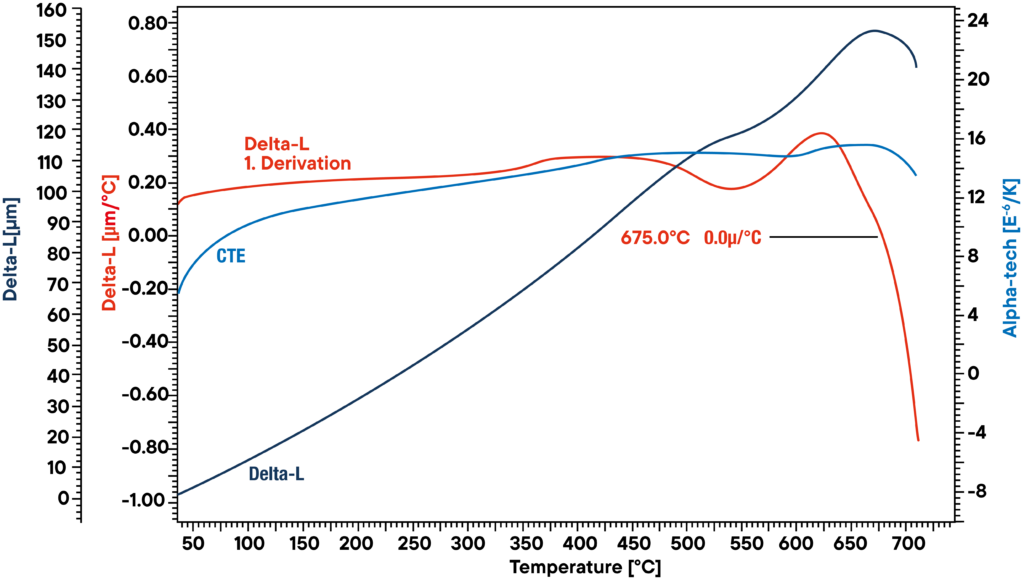
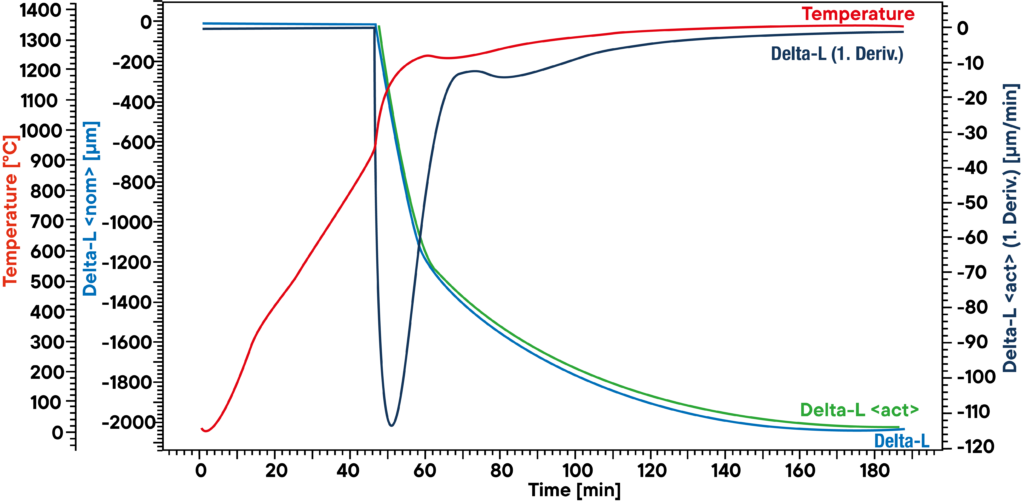
Well informed
